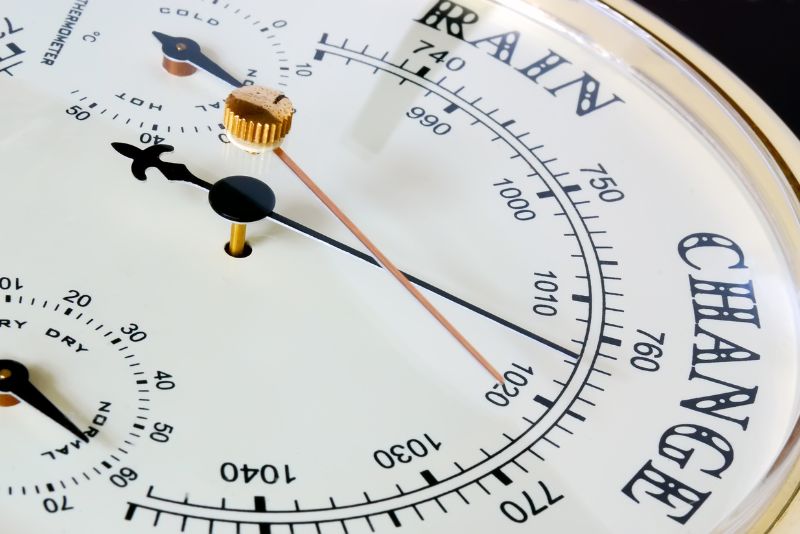A barometer is a tool used by meteorologists to predict weather patterns. By measuring atmospheric pressure, they can tell if a storm is coming, how strong it will be, and when it will hit. In this blog post, we will discuss the basics of barometric weather forecasting. We will cover how barometers work, what information they provide, and some tips on how to use them to predict the weather!
What is a barometer, and how does it work to predict the weather?
A barometer is an instrument that measures atmospheric pressure. It can be used to track changes in the weather, as barometric pressure is affected by both the temperature and humidity of the air. When the barometric pressure decreases, it usually indicates that a storm is on its way. The barometer will drop before the storm arrives as the wind starts to pick up and push the air out of its way.
As barometers measure atmospheric pressure, they are also affected by altitude. This means that you must take into account your location when using a barometer to predict the weather. For example, if you live in a high-altitude area, you may need to adjust your barometer readings to get an accurate forecast.
Types of barometers
According to Chloe, the project manager at Pergola Canberra, the most common type of barometer is the mercury barometer. This barometer uses mercury to measure atmospheric pressure.
Another type of barometer is the aneroid barometer. This barometer uses a sealed, partially-collapsed chamber to measure atmospheric pressure.
How to use a barometer to predict the weather
To use a barometer to predict the weather, you will need to take a reading at least twice a day, preferably in the morning and evening. You can either take readings manually or use an electronic barometer.
If you are using a mercury barometer, you will need to calibrate it before taking readings. To do this, simply adjust the screw at the top of the tube until the mercury level is at the zero mark on the scale.
Once you have taken a reading, you will need to compare it to the barometer readings from the past few days. If the pressure is rising, this means that the weather is improving and vice versa.

History of barometers and their use in forecasting the weather
Barometers have been used for centuries to predict the weather. The first barometer was invented by Italian physicist Evangelista Torricelli in 1643.
Since then, meteorologists have used barometers extensively to forecast the weather. Barometers work by measuring atmospheric pressure, which is a measure of the weight of the air above us. By knowing how much pressure is in the atmosphere, we can get an indication of what kind of weather is on its way.
High-pressure systems are usually associated with good weather, while low-pressure systems are associated with bad weather. This is because high-pressure systems are typically associated with stable air masses, while low-pressure systems are often associated with unstable air masses. Unstable air masses are more likely to produce severe weather, such as thunderstorms and hurricanes.
Applications of barometers today
Barometers can be used to forecast both short-term and long-term weather patterns. For example, barometers can be used to predict when a cold front is going to move through an area. By tracking the pressure changes over time, meteorologists can also get an idea of what kind of larger-scale weather patterns are developing. This information is then used in long-range forecasting.
The future of weather forecasting using barometers
Despite the many technological advances in weather forecasting, barometers still play an essential role in predicting the weather. They are simple to use and understand and can be used by anyone. In addition, barometers provide information about current atmospheric conditions that are not available from other sources. While their accuracy may not be perfect, they are a valuable tool for weather forecasting that is likely to continue to be used in the future. Have you ever used a barometer to predict the weather? What was your experience?